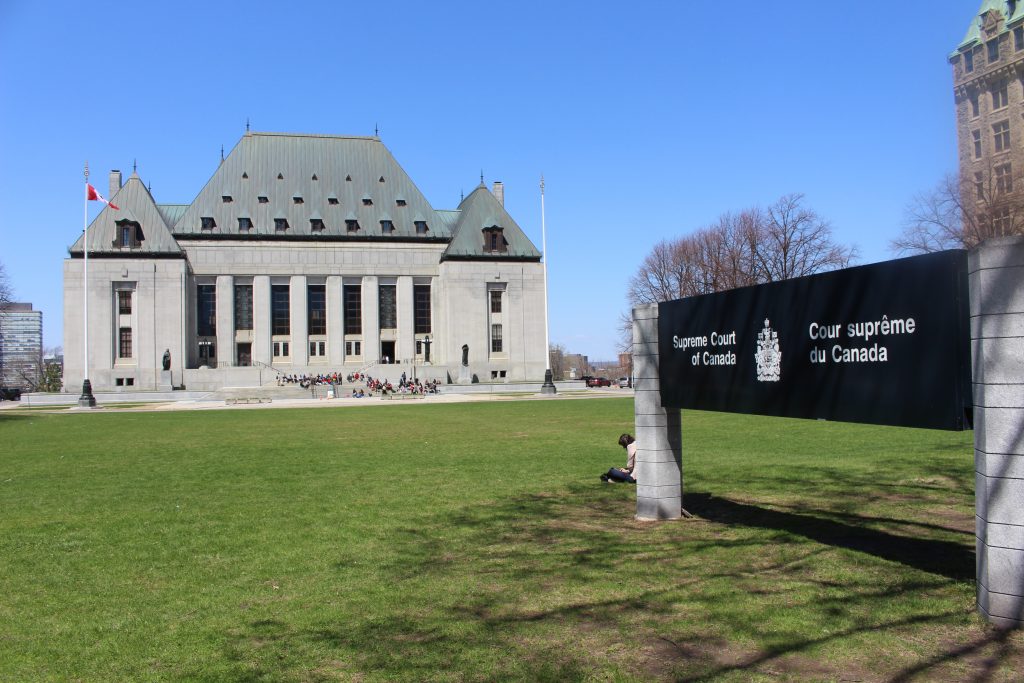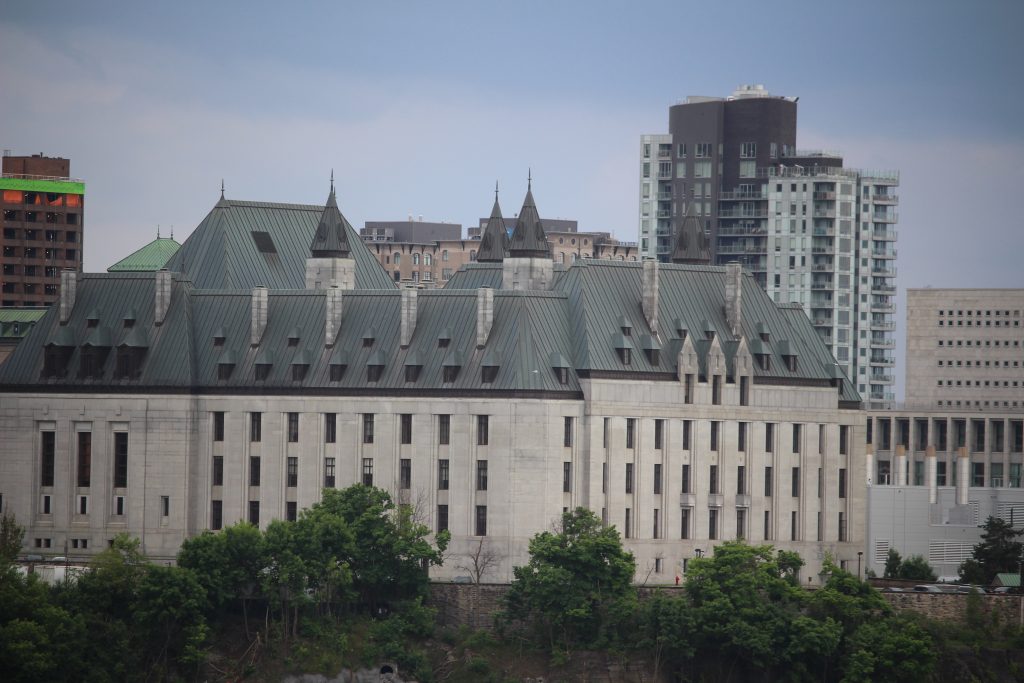
CCCC’s Director of Legal Affairs, Barry W. Bussey, represented the CCCC at the Supreme Court of Canada’s virtual hearing today (Dec 9) in the case of Ethiopian Orthodox Tewahedo Church of Canada St. Mary Cathedral, et al. v. Teshome Aga, (39094). CCCC was granted the opportunity to intervene in the case, and to file a brief, but was not given time for oral argument.
Brief Fact Summary
Several members of the Ethiopian Orthodox Tewahedo Church St. Mary Cathedral were on a committee that investigated a movement within the congregation. The committee reported to Archbishop Dimetros that the movement was heretical. The committee recommended action, including purging of heretics. When Archbishop Dimetros did not follow their recommendations, the committee members were robust in their opposition – to the point that they were warned of church discipline. Finally, they were suspended from membership. In response, they then sued in court. The church in return asked for summary judgment to dismiss the lawsuit. The Ontario Superior Court of Justice agreed with the church and dismissed the disgruntled members’ lawsuit, noting that the courts have no jurisdiction to hear such cases. However, the members appealed to the Ontario Court of Appeal.
The Court of Appeal stated that courts could hear the case because there was a contract between the members and the church. The contract exists, said the Court of Appeal, because the members pay “fees” to the church monthly; the terms of the contract are the constitution and bylaws of the church. That decision contradicted the Supreme Court of Canada’s 2018 Highwood Congregation of Jehovah’s Witnesses case that decided, “religious groups are free to determine their own membership and rules; courts will not intervene in such matters save where it is necessary to resolve an underlying legal dispute” (para. 39).

Court Hearing Today
Much of today’s hearing centred around the arguments of whether or not there was a contract between the members and the Church. Mr. Philip H. Horgan, legal counsel for the Church, argued that there was no contractual relationship. Rather, the Church is a voluntary religious community with an Archbishop who has spiritual authority over his congregation. The Church has an aspirational requirement that the members pay tithes, but such payments are gifts. They are donations and one does not lose membership because one is unable to donate. There was and is, said Mr. Horgan, no legal right in dispute that needs to have a secular court’s review. This matter concerned a religious dispute.
Mr. Anthony Colangelo, legal counsel for the plaintiffs, argued that indeed there was a legal contract with the constitution and bylaws forming the terms of the contract. Mr. Colangelo insisted that the dispute was not religious because the Archbishop dismissed the plaintiffs, not over doctrinal issues, but because they wanted transparency in reporting on the committee’s findings.
In addition to the parties, the court heard from nine other lawyers who represented interveners. Three more interveners – the Canadian Centre of Christian Charities, the Evangelical Fellowship of Canada, and the Catholic Civil Rights League – filed written submissions.
The CCCC raised concerns about the Court of Appeal’s decision that equated donations to consideration in a formal legal contract. Such a position runs contrary to the common law and to the Income Tax Act. The idea that religious communities and their members are engaged in a civil contract would mean a church could sue a member for not paying “fees” in accordance with the membership contract. It is simply unheard of.
Indeed, Justice Russell Brown quipped that the plaintiff’s interpretation “sounds like a very strange kind of contract to me.” By the same logic, he suggested, courts could be called upon to tell someone to stop presenting themselves for communion. Mused Justice Brown, “that’s not why I become a judge […]. I don’t want to make those kinds of orders, and I don’t think I have the power to do it.” He reminded the plaintiffs that “part of enjoying freedom of association is deciding who I don’t want to associate with. And the collective expression of the membership of this group was [that] certain members can no longer associate. And we’re supposed to interfere with that? Especially on the basis of a dispute about […] ‘desecration and contravention of the faith’?”
Similarly, Justices Rosalie Abella, Suzanne Côté, Malcolm Rowe and Nicholas Kasirer all raised questions that seemed to cast doubt on the plaintiff’s position.
As far as Justice Rowe was concerned, the plaintiffs were conflating several legal principles “which it’s unwise to mix up”. He observed, first, that “procedural fairness, natural justice, relate to the exercise of the authority of the state by delegates who’ve been granted authority. And the courts have wanted to ensure that the exercise of state authority is not misused […] When we look at contracts, it’s a different frame of reference.” Justice Rowe also objected to the plaintiff’s argument that “fairness concerns [such as notice, fair hearing, right to make representations] are applicable,” since, as Rowe countered, “these are concepts in criminal law” where “extraordinary measures and exceptional rules are put in place to ensure that there is the most unscrupulous fairness because of the nature of the interests which are at stake. And you’re trying to transpose things which have to do with the […] heavy hand of the state.” By contrast, Rowe emphasized that when there is no legal right at issue, there is no place for a court to interfere. He speculated, “What if the Archbishop says, ‘Look, I prayed to God and I received guidance.’ Are we supposed to say ‘Well, what did he tell you?’” Clearly, to follow the plaintiff’s position would be to entangle the court in theological matters. And, as Justice Brown concluded, “we’re not in the business of that.”
The Supreme Court has reserved its decision in the case, and we expect that sometime in 2021 it will be released.
“I am confident,” said Barry W. Bussey, “that there will be a decision in favour of the Church in this case. The Ontario Court of Appeal erred in law in this matter. Given the fact that the Supreme Court was both willing to hear this case in the first place, and asked such probing questions today, it appears the Court is aware of the importance of making a distinction between internal matters of religious communities and matters involving legal rights.”


